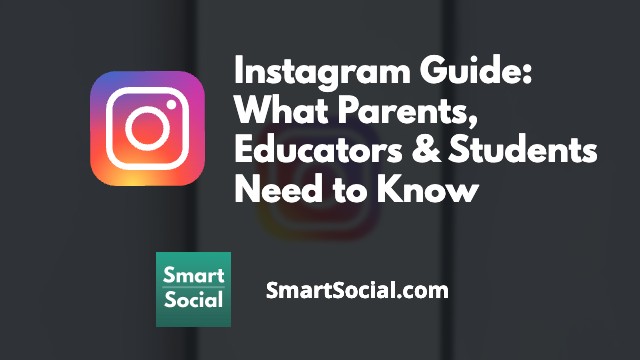How to Teach Kids Cell Phone Safety
Green Zone App
(Click here to learn more)
Dangerous Social media challenge
(Click here to learn more)
Red Zone App
(Click here to learn more)
Gray Zone App
(Click here to learn more)
We sat down with Stacy Pendarvis, Program Director of the Monique Burr Foundation for Children where she oversees all child abuse prevention education program efforts. In this podcast episode, we discuss what age your child should get a cell phone and cell phone safety tips for keeping them safe while using it.
Listen along on our podcast
Cell phone safety key Takeaways
- There’s no perfect age for when to give a child a cell phone, however, there are some questions you can ask that will help you determine if your child is ready for their own mobile device
- Rather than addressing and continually focusing on the negative, partner and connect with your kids and ask questions
- If you think your kid is ready for a phone, help them prepare for the responsibility of owning one
When is the right time to give your kid a cell phone?
There’s no perfect age for when to give a child a cell phone, however, there are some questions you can ask about you and your child(ren)’s habits/lifestyle that will help you determine if your child is ready for their own mobile device. For example, from a safety perspective, if you have a child who is 11, and walks to and from school on their own, it may be a good idea for them to have a cell in case they encounter a problem. Or you could have a 13-year-old who you take to and from school and doesn’t spend much time unsupervised or in extracurricular activities, so they may not have as urgent a need for their own device. The child’s inherent maturity and responsibility are also factors, as cell phones can be an expensive device to lose or break, even with the insurance. It also bears mentioning that whenever you do decide to give your child a phone, they’ll be experiencing external pressure to have their own device younger and younger, so as not to be left behind by their peers, as early access to technology becomes more ubiquitous.
Why is it important to have a dialogue with children once they have their own cell phone?
Dialogue is the most important thing. There is nothing wrong with giving kids a cell phone but you wouldn't give them keys to a car without teaching them how to drive. Sometimes parents give their kids a cell phone and don't teach them how to use it. Have frequent one-on-one conversations with kids to talk with them about the choices they’re facing and making when texting friends or going online and the risks and consequences of their choices.
What is a digital safety contract and what are its benefits?
It's one thing to have a conversation with your child and another thing to write down what you agree to about how they will use the technology. Include what apps they are allowed to use, which social networks they can join, which websites they can visit, and what they aren't allowed to do online. Be very explicit about the expectations for your child. Tell them what behaviors you expect them to do and not do.
Kids need to understand what the consequences are going to be if they violate the contract. The great thing about sitting down with your child and creating a contract is you're being upfront on your expectations. Be specific and direct when outlining prohibited behavior. SmartSocial Family Media Agreement
What is the importance of scheduled and random check up on your kids’ phones?
The more your child knows you're gonna be checking on them, the more they will hide what they are doing. Let them know that once a week you are all going to sit down and check their phone. Once in awhile, do a random check.For younger kids, start by limiting the number of apps that they can download. Have them join one platform then watch that for a while to see how they use it. Kids don't understand the long-term implications of what they are doing online. Everything they do can be public and permanent. Monitoring our kids is not stalking. We as parents have to teach them to understand the ramifications of what they're doing online.
What’s the line between protecting your kids and invasion of privacy?
The bigger thing is that parents are providing the phone, so we have a right to monitor it. With everything else in raising a child, we are teaching them the right way to do things. It is like when we check our kid's grades at school, we are doing the same thing with their phones. It's important that parents stay engaged and involved. One of the bigger issues is that a lot of us are not that tech-savvy. One of the things that I hear everywhere I go, is that they have their kids' passwords. My response is always no, you have the passwords that your kids want you to have. Give your child the technology and let them know that you're in it to help. Teach them how to be smart online, they’ll be more open to sharing things with you. Start young and be their partner to make sure that they are not doing things online that will affect them down the line.
What are some tips that parents can use to educate themselves and become more cyber savvy?
There are tons of resources out there. Parents can go online and enroll on courses that teach parents about bullying, cyberbullying and digital safety for kids. Challenge parents to actually learn what their kids are doing. Instead of lecturing your kids, try asking them questions. What is everybody doing on social media today? What's the greatest thing about technology and how to use it? Instead of lecturing, complaining, and going at it from a negative standpoint, partner with them. Engage them and ask questions.
Go online and look at resources and learn what your kids are doing online. Learn the chat acronyms and their meaning. Reality is we're at a point with technology, where we have a lot of cool stuff but it's only growing. Parents must challenge themselves to keep up with technology.
Tell us a little bit about your organization and how it started
The Monique Burr Foundation for Children was founded in 1997 by Edward Burr. He's a real estate developer in Florida. He and his wife Monique were on their 10th wedding anniversary in California and Monique was killed when their car was struck by a big truck. Monique was a huge child advocate for disadvantaged youth, abused and medically needy children in our community. On her first death anniversary, he started the Monique Burr Foundation for children to continue her work and legacy. We do everything we can to protect children in Monique's name.
Additional Resources
First Cell Phones for Kids (Gabb vs. Pinwheel vs. Bark vs. Troomi)
Protect your family and enter for a chance to win cool prizes
Become a member or log in to learn more on this topic
Protect your family and enter for a chance to win cool prizes

., start learning from this page to earn points!*
Hello, I'm Josh, the founder of SmartSocial.com.
Don't leave this page until you fill out our feedback form that will appear after you learn from the resources...
Become a Very Informed Parent (VIP) to get our social media suggestions in your email every Tuesday & Thursday.



Hello, I'm Josh, the founder of SmartSocial.com. Protect your family by taking my 1 minute quiz
This quiz will help you understand how safe your family is


Schools & Districts: Partner with us to protect your community online
Our remote presentations (and website) teach over a million parents and students each year how to be safe so they can shine online. We teach students how their accounts can be used to create a portfolio of positive accomplishments that impress colleges and employers.


Join Our Smart Social Podcast
each week on iTunes
With over 500 episodes, Josh Ochs interviews psychologists, therapists, counselors, teachers, and parents while showing you how to navigate social media to someday shine online.
Listen on:



.jpg)

.jpg)
.png)

.jpg)